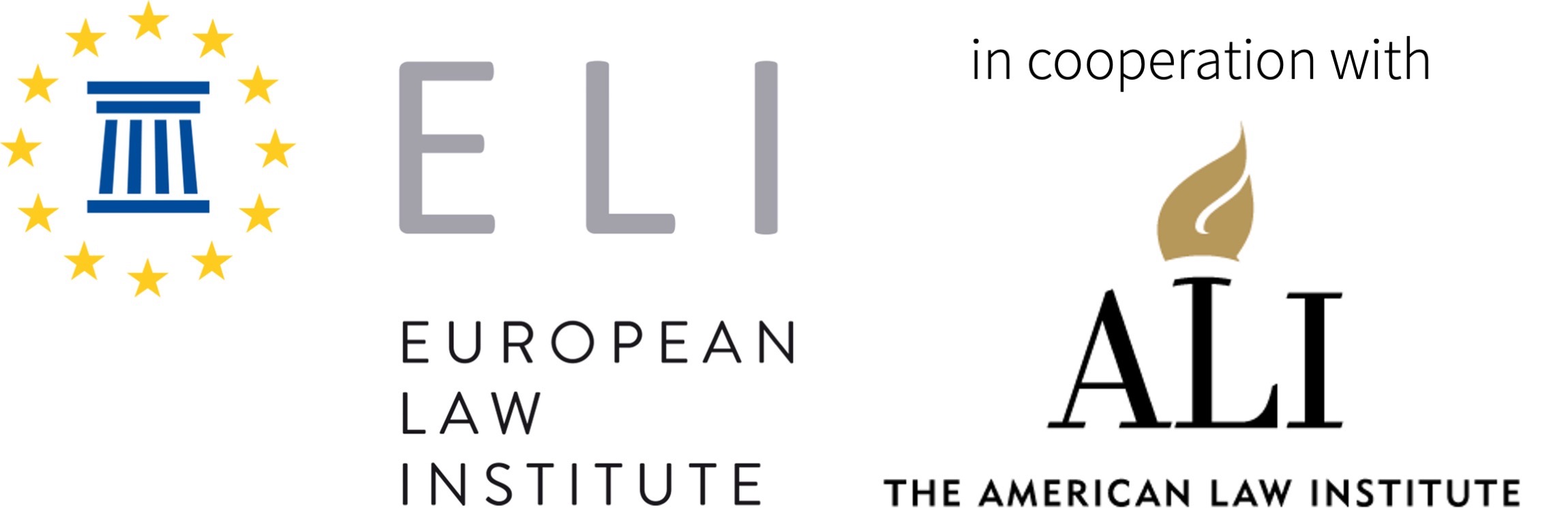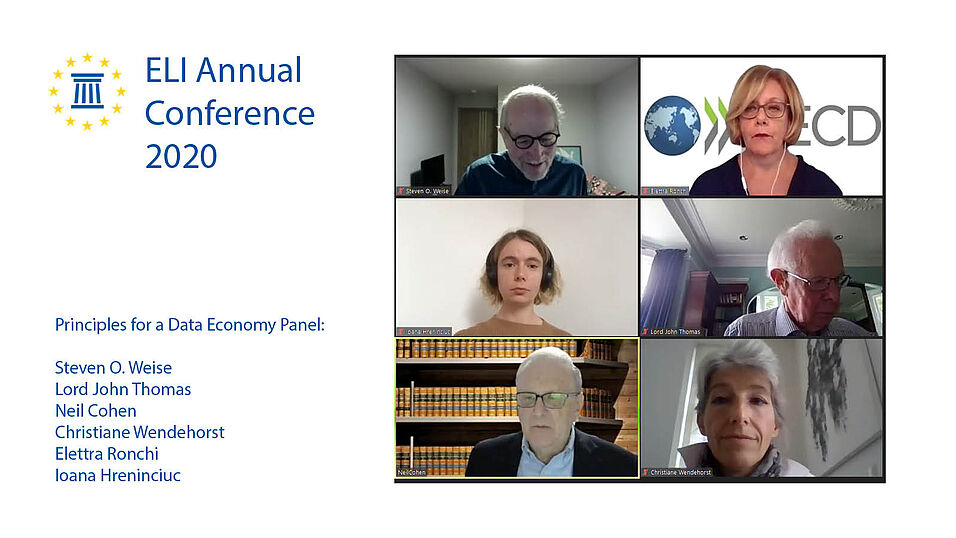Uncertainty as to the applicable rules and doctrines to govern the data economy potentially hinders innovation and growth and, more importantly, troubles consumers, data-driven industries, and start-ups worldwide. The ELI and the American Law Institute (ALI) tackle this uncertainty with their joint project 'ALI-ELI Principles for a Data Economy'. The Project Chairs Steven O Weise and Lord John Thomas together with Project Reporters Neil Cohen and Christiane Wendehorst presented the recently completed Preliminary Draft No 4 of the Project at the ELI Online Annual Conference and discussed the draft on a panel with Elettra Ronchi (OECD), Ioana Hreninciuc (GameAnalytics) and the ELI Membership.
The focus of the presentation of the recently completed Preliminary Draft No 4 was on the new principles on data-related services and on data rights for the public interest. The project Chairs pointed out that there is a need for very clear principles and that the project is on track to finish the Principles in the near future. The Chairs were further grateful that Elettra Ronchi, Senior Policy Analyst at the OECD and coordinator on the work on privacy, risk management and data governance in the Division for Digital Economy Policy, as well as Ioana Hreninciuc, CEO at GameAnalytics, accepted the invitation to discuss Preliminary Draft No 4 at the ELI Online Annual Conference.
Elettra Ronchi pointed out that data has become the lifeblood of economic and social interactions and that there is no doubt, that data access and porting can help in solving recent economic and societal challenges. There is a need for legal standards for the data economy worldwide and the OECD is working on a more general set of principles. These OECD Principles are on a higher level of abstraction and do not aim to solve legal problems 'on the ground', as the ALI-ELI Principles aim to do and for which there is a great need. Therefore, the OECD Principles and the ALI-ELI Principles can be seen as complementary initiatives.
Ioana Hreninciuc stressed that there is a practical need for more clarity and a set of legal standards like the ALI-ELI Principles for a Data Economy. Especially for SMEs, which offer their services globally and do not have a large legal team that can negotiate every data contracts in detail, it is very important to have clear tools they can rely on in their everyday business, and the necessary protection against unfair practices.
With the guidance received at the ELI Annual Conference and which they hope to receive during September, the Project Chairs and Reporters are looking forward to preparing Tentative Draft No 2, which will be submitted to the ALI Council this autumn for its meeting in January 2021.

